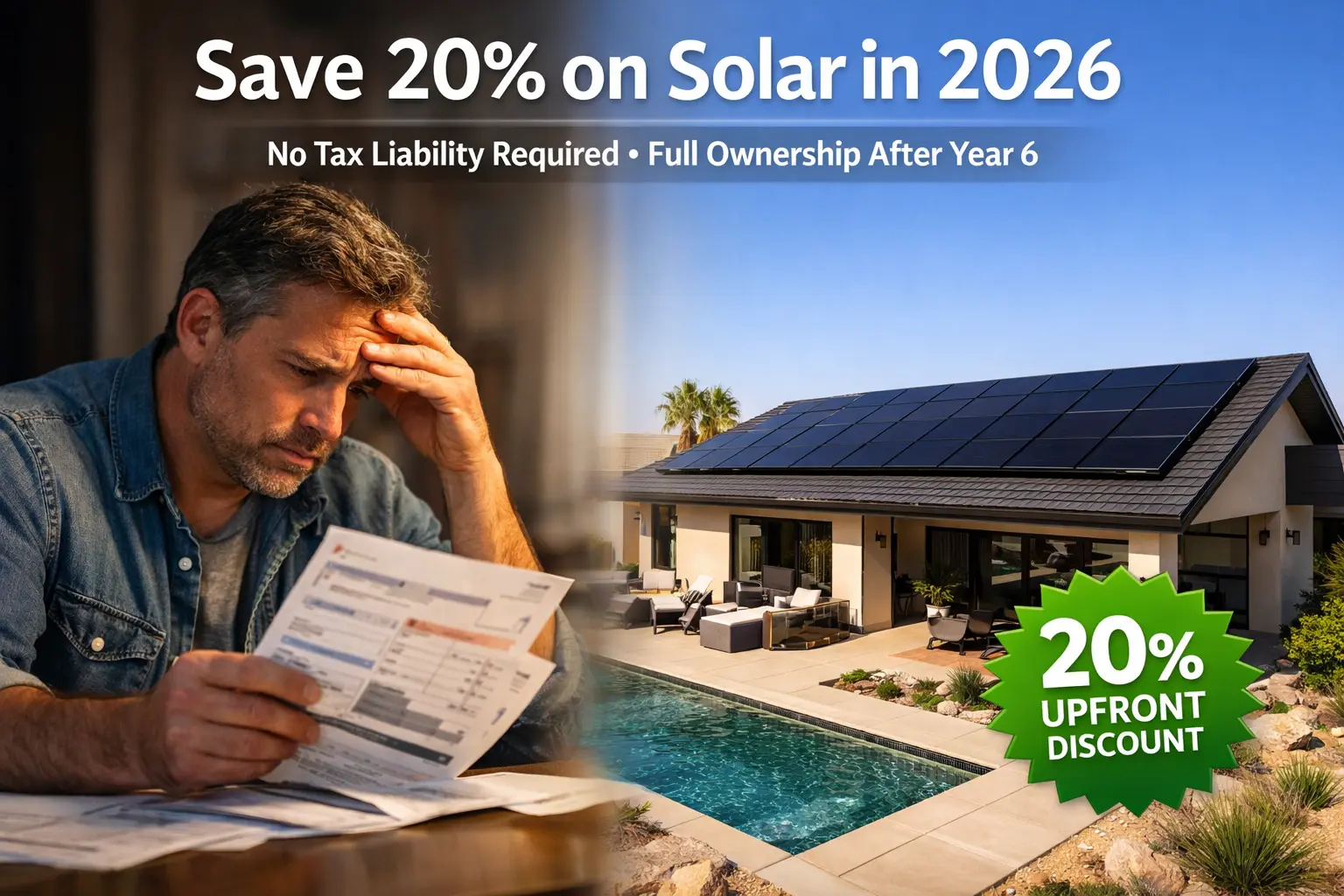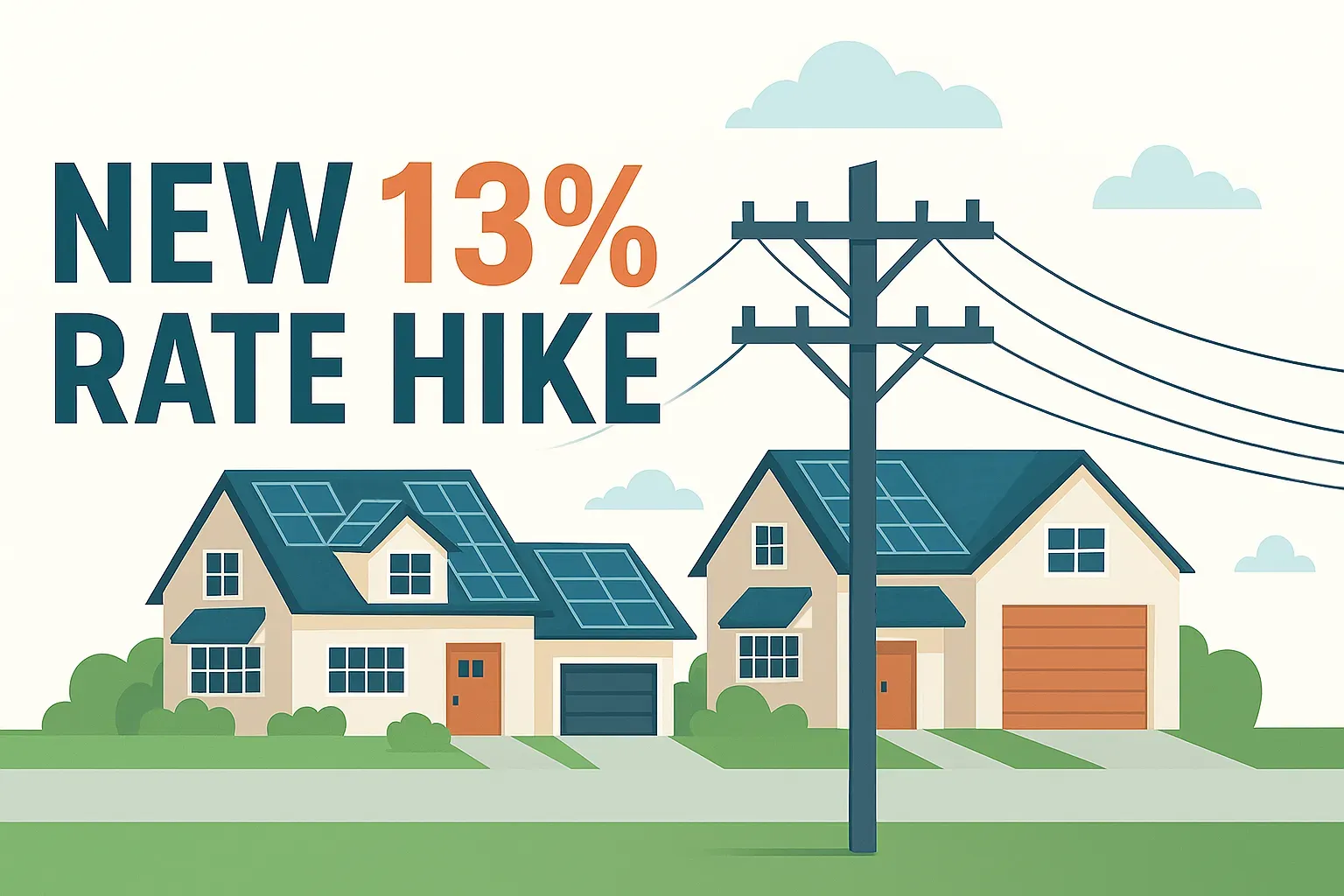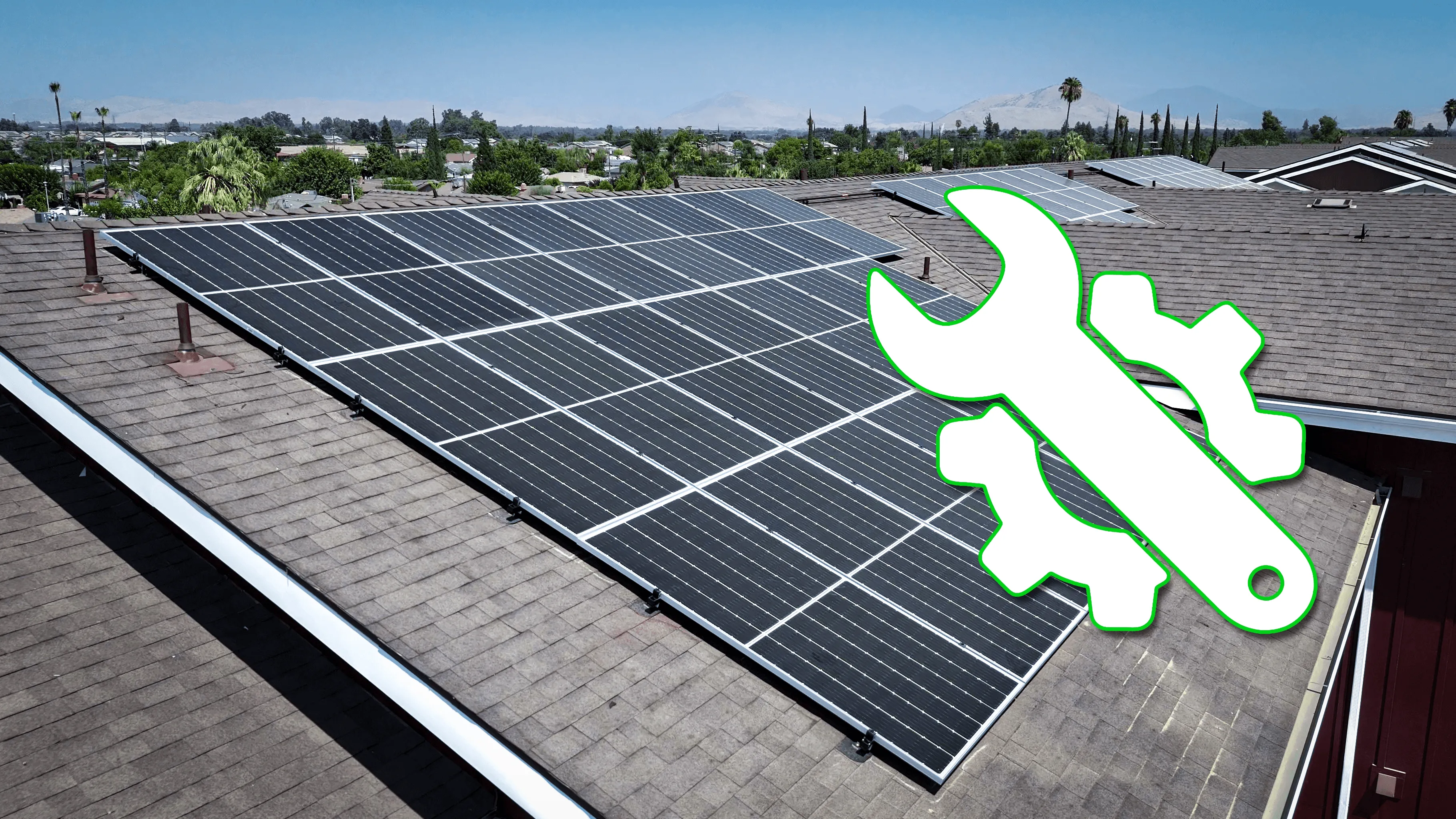Published On:
August 16, 2024
How do residential solar panels work? It seems like magic – sunlight magically transforming into electricity.
But once you grasp the basic science, you realize it's a smart process. This process changes how we power our homes and lessens our carbon footprint.
Understanding on how do residential solar panels work, from sunlight hitting a panel on your roof to powering your appliances, empowers you to make an informed choice about solar energy.
Ready to harness the sun’s power and reduce your energy bills? Contact Option One Solar today to find out how solar energy can be tailored to fit your needs.
Harnessing the Sun's Energy
Sunlight is more than just light and warmth; it's a source of immense power. To understand how do residential solar panels work, we need to start with the star of the show – the sun.
Deep within its core, temperatures hit 27 million degrees Fahrenheit. This scorching furnace is fueled by the fusion of hydrogen atoms into helium.
This fusion releases a continuous stream of energy in the form of photons. These tiny packets of energy, traveling at the speed of light, provide a constant flow.
In just one hour, enough solar energy reaches the Earth to power the entirety of human civilization for an entire year, a staggering fact highlighted by research from UC Davis.
From Sunlight to Electricity: The Photovoltaic Effect
This is where solar panels step in. Instead of letting this energy dissipate, solar panels, also known as photovoltaic (PV) panels, harvest it.
Solar panels make solar energy a viable power source for homes.
Discovered in 1839 by Edmond Becquerel, this fascinating work of physics and chemistry, known as the photovoltaic effect, makes solar panels work.
But what exactly makes this possible? The answer lies in the composition of solar cells.
Almost all solar cells – about 95% to be exact – are made from silicon, a readily available semiconductor material.
Silicon is unique because it can absorb photons from sunlight, knocking electrons loose within the silicon atoms.
The Flow Begins: Generating Direct Current (DC)
Within the solar panel, these freed electrons are carefully guided to create a flow of electricity. Each silicon cell acts like a tiny battery, containing a positive and a negative layer.
As the sunlight knocks electrons loose, the electric field between these layers pushes the negatively charged electrons in one direction.
The positively charged “holes” they leave behind move in the other, creating a flow of direct current (DC) electricity. Think of a water wheel.
The sun’s photons are like the flowing water hitting the paddles (the silicon cells), causing the wheel (the electrons) to turn and generate power.
Inverters: Bridging the Gap to Your Home
While solar panels do the heavy lifting of converting sunlight to electricity, this electricity comes in the form of DC.
This is where inverters, often considered the brains of any residential solar power system, come in to play a crucial role.
Here's the simple truth: our homes run on alternating current (AC) electricity.
The inverter's job is to transform the DC electricity generated by your solar panels into AC electricity. This converted AC electricity flows directly into your home's electrical panel.
This makes the solar electricity works like the electricity delivered by traditional power grids.
Let Option One Solar guide you through installing the perfect system for your home—contact us today for a free consultation!
What Happens When Your Solar Panels Produce More Electricity Than You Use?
You might be thinking, what if my solar systems generate more electricity than I'm using? This surplus energy doesn't go to waste.
It’s seamlessly transferred back to the utility grid. Through net metering or NEM 3.0, your utility company credits you for this surplus energy.
This means you're essentially selling your excess electricity back to the grid, which helps offset the energy you draw from the grid at night.
The same goes when your panels aren't operating at their peak. It's a win-win that underscores how do residential solar panels work are transforming energy consumption patterns.
The Impact of a Residential Solar Revolution
The mechanics of how do residential solar panels work are captivating, but their impact reaches far beyond our homes.
They contribute to a future shaped by more sustainable and clean energy resources.
Economic Advantages of Residential Solar
Solar energy is good for the planet and for your wallet. The residential solar installation industry has witnessed remarkable growth and innovation.
The cost of going solar has dropped every year since 2009, which is a testament to that growth.
But the benefits don’t stop there. Here are some benefits when installing solar energy:
Once solar installation costs are recovered, minimal maintenance is needed for the 25-40 year lifespan of solar panels.
Solar panels provide free electricity for much of their lifespan, reducing reliance on the grid.
Homeowners can save money and earn credits by sending excess energy back into the system.
Long-term savings from solar panels range between $20,000 and $96,000, depending on location and energy usage.
Solar energy technologies are continuously improving, making them more efficient and cost-effective over time.
Environmental Impact and Sustainability
Residential solar panels represent a crucial step towards a greener planet and energy independence.
One of their most compelling benefits is their eco-friendliness. Solar panels help fight climate change by lowering our reliance on fossil fuels.
Every kilowatt-hour of electricity generated from solar panels is a kilowatt-hour not produced by a coal-fired power plant.
This shift toward cleaner energy leads to reduced greenhouse gas emissions. There will also be less air pollution, creating a healthier environment.
Additionally, as the adoption of solar energy expands, so will the demand for sustainable manufacturing practices and eco-conscious material sourcing.
FAQs about How do Residential Solar Panels Work
How do solar panels work on a residential house?
Solar panels on homes use the sun's energy to generate electricity. When sunlight hits a solar panel, the solar power works its way to create an electric current through the photovoltaic effect.
The direct current (DC) electricity is then converted to alternating current (AC) electricity by an inverter. From there, it can power your house.
Do you really save money with solar panels?
Solar panels can lead to big savings on your electricity bill and potentially even eliminate it. This will depend on factors such as your location, energy consumption, and available sunlight.
Solar energy works as an investment that takes time to see a return on. Researching local incentives and consulting with reputable solar panel installers like Option One Solar is essential.
How many solar panels does it take to run a house?
The number of solar panels you'll need depends on your household energy usage and the wattage of the panels.
Contact Option One Solar today for an accurate estimate tailored to your needs.
Empower Your Home and Future with Solar Energy
So, how do residential solar panels work? Essentially, by seamlessly capturing photons from sunlight and transforming them into electricity, this technology offers an efficient solution.
Solar panels are a sustainable and economically sound way to power your home.
Solar empowers homeowners to take control of their energy use, save money, and contribute to a more sustainable future.
As technology advances and becomes more accessible, the idea of powering our homes with clean, renewable energy moves closer to a brighter, greener future.
Transform your energy solution with Option One Solar. Schedule your free consultation with Option One Solar today to start your journey to sustainability.



